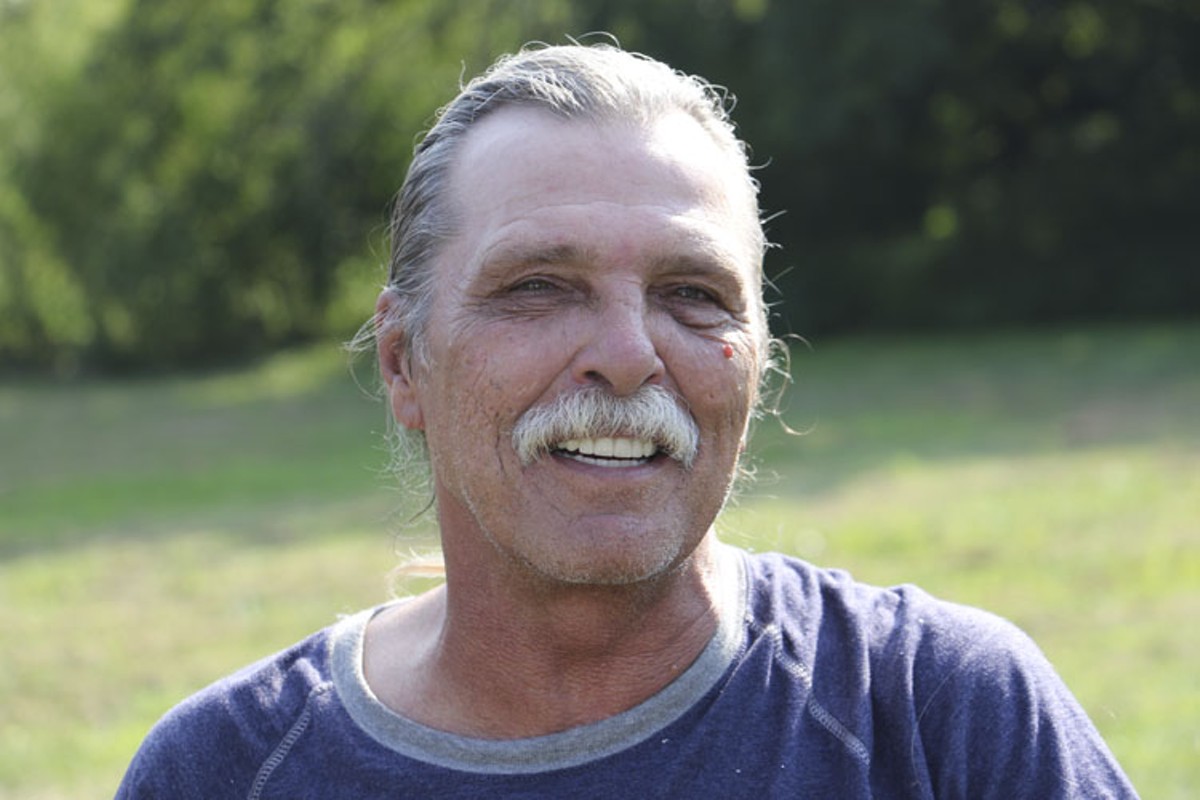At 1:30 a.m. on September 1, Jeff Mizanskey woke up in his prison cell at the Jefferson City Correctional Center after a brief nap. The 62-year-old had been in prison for nearly 22 years. But in six hours, he would be a free man. He couldn't fall back asleep.
The seconds ticked by slowly. Guards came by every 90 minutes or so to shine a light on him and his cellmate. This was procedure, a way to make sure prisoners were still alive. Before, it had always bothered Mizanskey. It didn't matter today.
As day broke and the prison began to wake, guards and inmates who had known Mizanskey for years came by to wish him well.
"Only two more hours, Mizanskey," a guard said as Mizanskey walked down the hall.
"You leaving already?" teased a fellow prisoner.
After many hugs and handshakes, Mizanskey, sporting a bushy mustache and gray hair tied back in a ponytail, made his way to a waiting room where he would be formally processed out of the prison. The T-shirt waiting for him was something he couldn't be happier to wear: a black crewneck with the logo of the marijuana law reform group Show-Me Cannabis — a green and maroon pot leaf over the state of Missouri. Underneath were the words, "I'm Jeff & I'm Free."
Around 7:30 a.m. the JCCC's guards walked Mizanskey toward the lobby. When he turned the corner and faced the front door of the prison, he was taken aback.
"There were so many people and cameras everywhere, I almost went back inside," he says, laughing. "I didn't expect all those reporters, and I barely recognized my own family because I couldn't see their faces — they all had their phones in front of their faces!"
Still, it wasn't difficult to pinpoint his family members — they were all wearing Show-Me Cannabis T-shirts, only theirs said, "#WeFreedJeffMizanskey."
At the front of the crowd was Chris Mizanskey, the inmate's 37-year-old son, who had become the de facto family spokesman over the past two years. Mizanskey walked through the metal detector, no longer a prisoner, and hugged him. Both men cried as family and supporters applauded. And more family members held their arms open for Mizanskey: his older son Robbie, his brother Mike and many more.
Surrounded by TV cameramen hovering inches from his face, Mizanskey walked outside, where a podium and microphone was waiting. He thanked his family, his supporters, Show-Me Cannabis and Republican state representative Shamed Dogan of Ballwin, who'd persuaded legislators to support his release.
Mizanskey also condemned the sentence he believes he never should have received.
"It's about time," he told reporters. "I wish they had done it fifteen or twenty years ago. I spent a third of my life in prison. One third. That's a shame. This is America. I just can't believe it happened."
Mizanskey also pointed out that there are others serving excessive sentences for nonviolent drug offenses.
"I finally made it to freedom," he said. "There's a lot of people in here that deserve the same thing."
Over the past 22 months, Mizanskey has become the symbol of unjust sentences for marijuana use in Missouri. Punished under a draconian three-strikes law that allowed life without parole for three drug felonies, Mizanskey was the only prisoner in the state serving that sentence for marijuana-only crimes.
As his case became known, his story drew enough sympathy and anger to propel activists and concerned citizens to petition Governor Jay Nixon to grant clemency. Those efforts failed, but they triggered thousands of phone calls and letters to the governor and grabbed the attention of Dogan, who pushed legislation to free Mizanskey. Dogan's bill never got to a vote, but it succeeded in getting many lawmakers from both parties to vocally support Mizanskey's release.
Eventually, Nixon had to do something. And in August the governor commuted Mizanskey's sentence, making him eligible for parole. Things moved quickly after that.
Mizanskey's release was a bittersweet victory for a man who just recently became a great-grandfather: He's out of prison, but he can't help but think about the 21 years of his life he spent there, all for three relatively minor marijuana busts.






